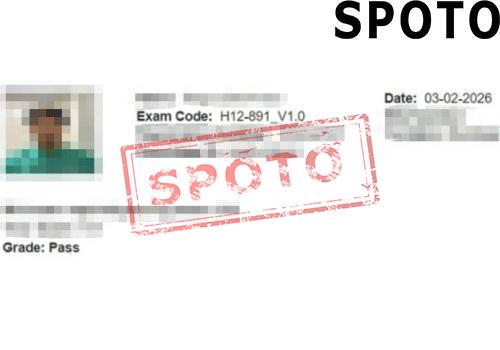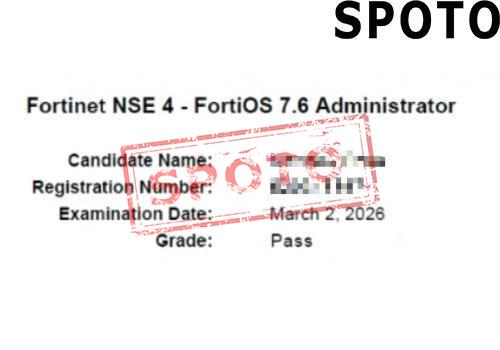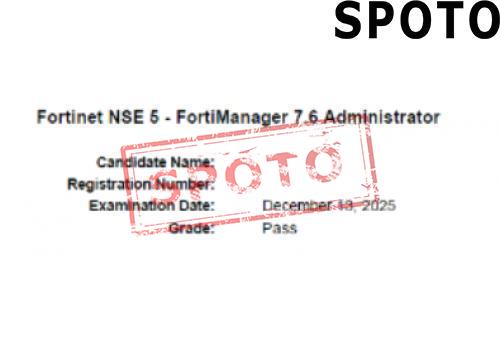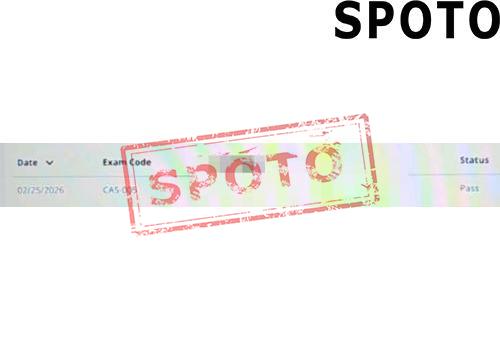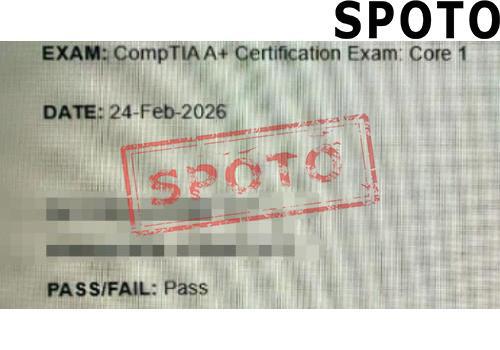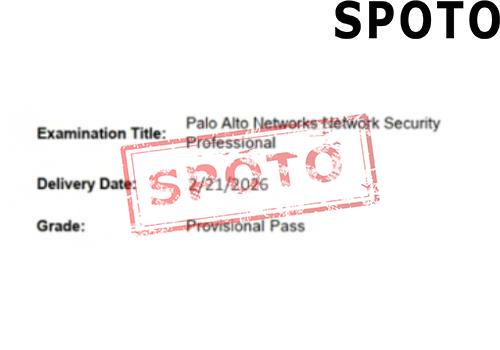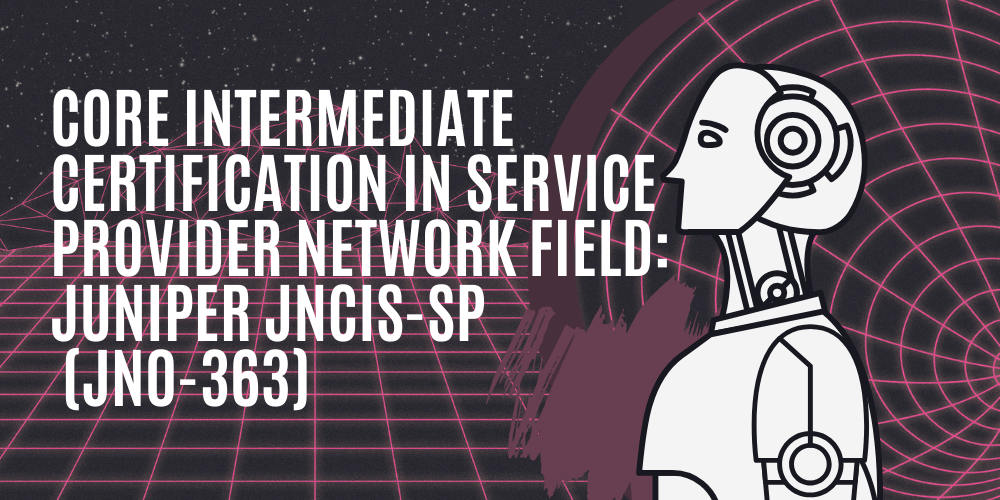
Table of Contents
- 1. Introduction to the Juniper JNCIS-SP (JN0-363) certification
- 2. The Rewards of Being a Juniper JNCIS-SP (JN0-363)
- 3. Core Components of the Juniper JNCIS-SP (JN0-363) Certification
- 4. What are the requirements to be a Juniper JNCIS-SP (JN0-363)?
- 5. Comparable Certifications to Juniper JNCIS-SP (JN0-363) Certification
Juniper JN0-363 is a core intermediate certification for service provider networks that focuses on practical applications of key technologies such as routing and switching.
1. Introduction to the Juniper JNCIS-SP (JN0-363) certification
Juniper JNCIS-SP (JN0-363) is the "Service Provider Routing and Switching Expert Certification" in Juniper Networks' certification system, designed for network professionals with basic to intermediate knowledge of the Junos operating system, to verify core capabilities in implementing, configuring, monitoring, and troubleshooting in service provider network environments.
It is a crucial intermediate link in the Juniper service provider certification path and a necessary certificate for advancing from a basic network engineer to a service provider network expert. The service provider network needs to meet the core requirements of "large-scale routing scheduling, multi service carrying, and high availability operation." Unlike ordinary enterprise networks, its technical applications are more complex.
The core of JNCIS-SP certification is to cultivate "service provider network practical intermediate technical engineers," who are not simply theoretical learners, but can proficiently use the Junos operating system to complete core technology configuration, daily operation and maintenance, and common troubleshooting for the core scenarios of service provider networks, ensuring the stable operation and service delivery of basic network business.
When deploying metropolitan area networks for regional ISPs, JNCIS-SP certificate holders will complete routing docking with higher-level operators through BGP protocol; Deploying MPLS L3VPN to provide cross regional dedicated line services for enterprise customers; Enabling BFD+VRRP improves network fault detection and switching efficiency, ensures bandwidth requirements for critical services such as voice and video through QoS policies, and ultimately achieves efficient operation and service delivery of metropolitan area networks.
2. The Rewards of Being a Juniper JNCIS-SP (JN0-363)
JNCIS-SP is an officially recognized intermediate qualification for service providers by Juniper, and is highly recognized among ISPs and Juniper partners. When recruiting intermediate network engineers and dedicated line technical operation and maintenance positions, they are often listed as "priority conditions," which is the core indicator to distinguish between basic operation and maintenance and intermediate technical backbone.
JNCIS-SP is a necessary path for advanced Juniper certification, which enables a systematic mastery of service provider network core technologies and lays a solid foundation for future entry into the industry expert ranks. Internationally, the salary premium for certificate holders in multinational operators and ISPs is about 20%-35%.
JNCIS-SP (JN0-363) certification covers the core technology applications of service provider networks. After passing, it can prove the ability to independently complete network configuration and operation of small and medium-sized service providers. Enterprises can directly arrange for certified personnel to participate in core network projects without extensive pre job training, and can quickly undertake intermediate technical work after joining.
3. Core Components of the Juniper JNCIS-SP (JN0-363) Certification
For network engineers who are committed to deepening their technical capabilities in the field of service provider networks, Juniper Service Provider Network Intermediate Certification is an important professional qualification that connects the past and the future.
JN0-363 certification systematically covers core technologies such as routing, switching, MPLS, and VPN in operator network environments, aiming to comprehensively verify your solid technical capabilities in designing, deploying, and operating medium to large service provider networks.
Protocol independent routing technology requires you to master static routing optimization and routing aggregation techniques, and be able to achieve fine-grained traffic control through routing instances and filter based forwarding.
As a key focus of authentication, you will delve into OSPF multi area design and special area configuration, master IS-IS hierarchical network deployment, and be able to implement BGP routing policies and fine control of community attributes.
MPLS technology is the cornerstone of operator networks. You need to be proficient in configuring MPLS label forwarding and LDP/RSVP-TE protocols, and be able to use tools such as LSP Ping for fault detection.The service provider exchange technology module requires you to master QinQ double-layer labeling technology and operator level bridging technology to build a layer 2 network environment that meets the needs of multiple tenants.
Deploying VPN services means that you will learn to configure mainstream VPN technologies such as MPLS L3VPN and VPLS, enabling cross regional network connectivity for enterprise customers. In addition, certification also requires you to master key high availability technologies such as MC-LAG and BFD to ensure the continuous availability of network services. You need to have the implementation capability of IPv6 network deployment and transition technology to prepare for network evolution.
Finally, you will learn the configuration of the DiffServ QoS model and be able to systematically troubleshoot common faults in the network.
4. What are the requirements to be a Juniper JNCIS-SP (JN0-363)?
(1) Qualification prerequisites:
The prerequisite for obtaining JN0-363 certification is that you must first pass JNCIA Junos (JN0-105) certification and possess basic Junos operating system configuration and network basic operation and maintenance capabilities.
We recommend that you have 1-2 years of practical experience in service provider networks or large enterprise wide area networks, familiar with core technology concepts such as routing and switching, MPLS, etc. Master advanced Junos CLI operations and be able to independently complete basic configuration and troubleshooting of network devices.
(2) Training and examinations:
The JN0-363 certification consists of approximately 65 questions, including multiple-choice questions, scenario analysis questions, and configuration simulation questions. The exam lasts for 90 minutes. Full score of 1000 points, reaching 650 points or above to pass. The exam fee is about $300, with slight differences in tax fees in different regions.
(3) Qualification maintenance:
The validity period of the JN0-363 certificate is 3 years, and the renewal requirement is that you need to pass Juniper's higher-level certification or retake the JN0-363 exam within the validity period to renew the certificate's validity.
5. Comparable Certifications to Juniper JNCIS-SP (JN0-363) Certification
- CCNP Service Provider
- HCIP-Datacom
- Nokia NRS II
